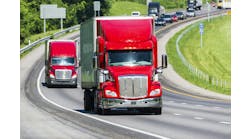The Coalition for Transportation Productivity (CTP), a group of more than 180 shippers and allied associations dedicated to responsibly increasing federal vehicle weight limits on interstate highways, sent a letter to Congress to confront what they call misinformation surrounding federal truck weight legislation known as the Safe and Efficient Transportation Act (SETA), H.R. 763, S. 747. In the letter, CTP attempted to dispel allegations about SETA by groups opposed to the legislation.
First, CTP denied that trucks are “dramatically overrepresented in fatal crashes,” saying this statement ignores the fact that trucks log five times more vehicle miles traveled than the average car. CTP counters that in 2009, 10% of motor vehicle fatalities resulted from crashes involving a large truck, and large trucks logged 9.8% of all vehicle miles traveled. Truck crash rates are, the group concludes, in line with their portion of the total vehicles miles traveled.
“Members of Congress need to know that the facts support SETA as a safe way to boost economic productivity while reducing our carbon footprint and the number of trucks necessary to meet demand,” said John Runyan, executive director of the Coalition for Transportation Productivity.
“In order to drive and accommodate economic growth, we can either put more trucks on the road or allow them to safely carry more weight. SETA offers each state the ability to open portions of its interstate network to safer six-axle trucks that can ship more freight while meeting the same federal braking and handling standards. Six-axle trucks can help companies lower their accident rates and dramatically reduce their fuel use and carbon emissions.”


